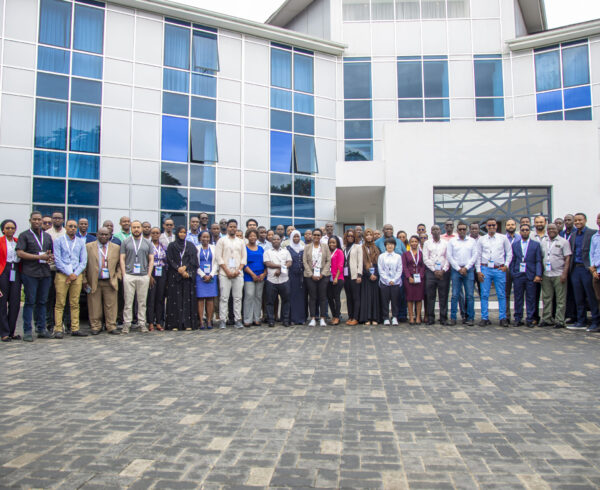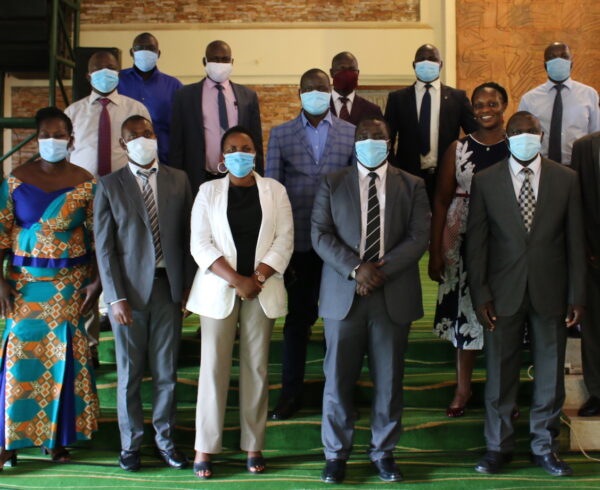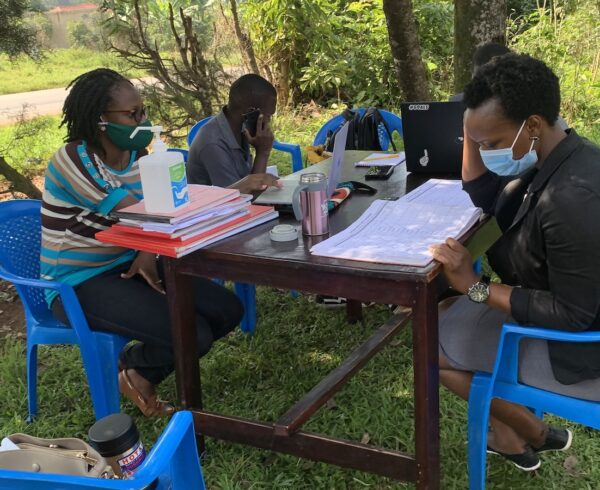The first Regional Quality Improvement Learning Exchange is a collaboration between the Ministry of Health Uganda (MoH), CDC Uganda, Makerere University School of Public Health – Monitoring and Evaluation Technical Support (METS) Program, University of California-San Francisco (UCSF) and HEALTHQUAL International. Five countries from the region were in attendance, these included Kenya, Tanzania, Mozambique, Rwanda and Uganda. Invitations were extended to Quality Improvement (QI) experts from Haiti, USA and Namibia.

Members of the Organizing Committee of the Learning Exchange from MoH, HEALTHQUAL International, MakSPH-METS & UCSF
The Exchange was an interactive peer-led event that provided an opportunity to gain expertise, build networks, share QI success and implementation barriers as well as learn new strategies for advancing the use of data in national HIV quality improvement programs. The main aim of the exchange was to provide a platform to the participants to discuss best practices and new strategies for advancing data use in national HIV quality programs.
Dr. Jennifer Galbraith, from CDC Uganda officiated at the opening of the workshop, noted that such interventions were very necessary and PEPFAR invested in above site mechanisms to provide technical assistance to implementing Partners, Ministry of Health, District Health Teams; with the aim of achieving Quality Improvement in the different programs they give support to. She also further emphasized the need to boost the focus on quality care for men to achieve the 90-90-90 targets.
Ms. Evelyn Akello the METS Program Manager, who represented the Program PI, Professor William Bazeyo noted that coming together was meant to create solutions and serve as a reminder that there is always room for improvement especially regarding quality issues, not just in the HIV care, but in general facilities as well.

Jennifer Galbraith (CDC), Rachel King (UCSF) and Evelyn Akello (METS) during the Keynote presentation
While delivering the Keynote address, Dr. Sarah Byakika’s (Commissioner for Planning-MoH) passion for quality improvement was unmistakable as she gave an overview of quality improvement efforts put in place and being planned by the Ministry of Health in Uganda. She traced the QI development journey all the way back to 1994, through to implementation and was proud to highlight that Uganda was the first country in sub-Saharan Africa to have a QI strategic Plan. “The Ministry of Health is in the process of hiring more Bio-statisticians’ who will be responsible for data at the district level as a way of ensuring quality data collection,” she added.
The exchange was composed of plenary and interactive panel sessions on various topics ranging from Voluntary Medical Male Circumcision (VMMC), Partnership for HIV Survival, Consumer Involvement, facility quality assessment program by the Uganda Ministry of Health, cost effectiveness of services towards quality improvement’ WHO’s framework on integrated people centered health services among others. The country presentations were quite intriguing with shared experiences from Kenya (Kenya Quality Management Program), Rwanda (Rwanda Health Information systems for Quality improvement), Tanzania (Implementation of QI) and Mozambique (The Mozambican HIV Quality Improvement Program). The other country presentations included; Building the QI web portal of Haiti and Putting of Quality Management at the Forefront in Namibia.
The delegates’ most interactive session was on costing with expert guidance on Quality improvement in practice (Cost/efficiency & cost-effectiveness), why collect cost data, types of costs are to be measured, methods that would be used and how one would estimate the cost QI (Exercises & Combining costs).
Dr. Benson Tumwesigye of the Quality Assurance Department at the Ministry of Health applauded PEPFAR for the tremendous support of HIV programs through CDC and USAID, who have put up a combined front to scale up interventions to facility level. He noted that such support (that is not rigid to HIV care and treatment) allows for development because health issues cannot be isolated. Delegates were informed of the MoH plans to implement the Health Facility Quality Assessment Program (HFQAP) in Uganda whose main objective will be provision of information on the quality of care and the general functionality of both public and private health facilities and use this information for continuous quality improvement. In his closing remarks, he thanked the delegates for prioritizing the exchange and called on them to share what was learnt with the aim of influencing strategy and planning in their respective countries.




